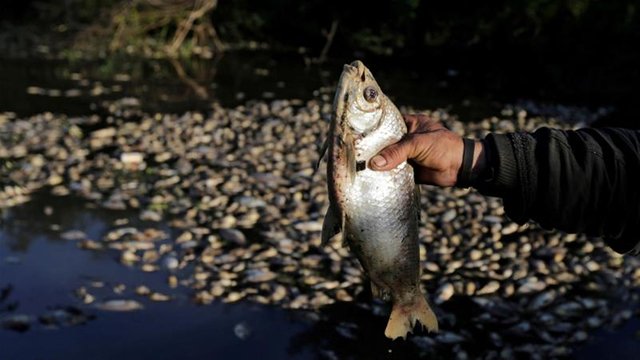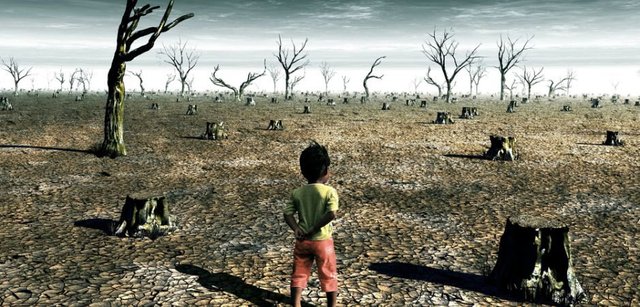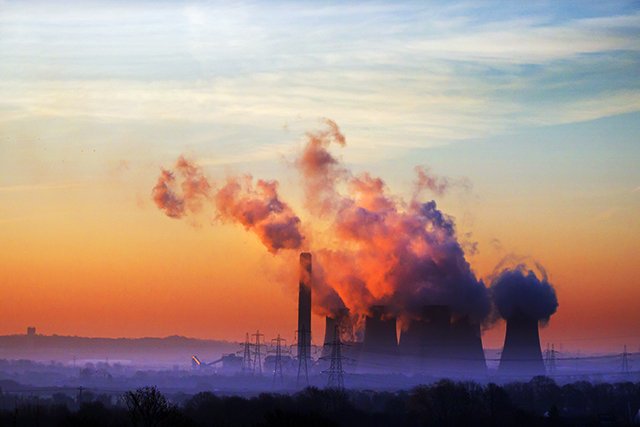
Human activity has driven plant and animal species into decline all around the world, putting the future of humans at risk in the long run, a new extensive report has stated.
Over the coming decades, climate change will worsen the loss of biodiversity even more, the study, which was released on Friday, warned.
The three-year-long research was conducted by the Intergovernmental Science-Policy Platform on Biodiversity and Ecosystem Services (IPBES), consisting of almost 600 scientists.
"Biodiversity continues to be lost across all of the regions of the globe. We're losing species, we're degrading ecosystems ... if we continue 'business as usual', we will continue to lose biodiversity at increasing rates," said Robert Watson, IPBES chairman.
"If we continue the way we are ... the sixth mass extinction, the first one ever caused by humans, will continue," he was quoted as saying by AFP news agency.
"We're undermining our own future well-being."
For the research, the volunteer scientists assessed 10,000 scientific publications on biodiversity, the biggest such research in more than a decade.
According to the IPBES report, almost a third of known marine fish populations, and 42 percent of land animals and plants, are in decline in Central Asia and Europe.
In the Asia-Pacific region, up to 90 percent of corals will suffer "severe degradation" by 2050, and more than half of the bird and mammal species in Africa could be lost by 2100 unless drastic measures are taken.
Africa will suffer "significant" plant losses, and its lakes will be 20-30 percent less productive by 2100 because of land degradation.
According to the research, species populations in the Americas has gotten 31 percent smaller since the first European settlers arrived in the fifteenth century.
At the current rate, the species populations will have shrunk by about 40 percent in 2050.
Humans rely heavily on nature, providing humanity with water, energy and the climate.
All of those factors are at risk if there are no changes to humanity's current way of living, according to the IPBES report.
"This alarming trend endangers economies, livelihoods, food security and the quality of life of people everywhere," IPBES warned.

Climate change
The research also focused on the effects of climate change on the decrease in biodiversity, saying the change in global temperature will significantly increase the speed at which species become at risk.
"Economic growth is going to continue. Population growth is going to continue to 2050, therefore demand for resources will grow," Watson said.
"Climate change for the last 30 years has been increasing its role in changing nature, changing the ability of how nature can contribute to human well-being, and it is by far the fastest-growing pressure," said Jack Rice, coauthor of the report.
"It is likely by 2050, a generation away, climate change will be as strong a pressure as all the ways that we have historically converted natural lands to human-dominated systems," he added.
Despite this grim outlook, the assessment of biodiversity offers some solutions as well.
According to the report, governments, businesses and individuals should think about the effect on farming, fishing, forestry, mining, or infrastructure development have on the biodiversity.
"Can we stop all of it? No. Can we significantly slow it down? Yes," Watson said.
The release comes days after Sudan, the world's last male white northern Rhino, died.
Another report, about the state of the global soil, will be released in the near future.
That assessment will focus on the effect pollution, forest-destruction, mining, and unsustainable farming methods have had on nutrients in the Earth's soil.
Collected by: AL JAZEERA NEWS
Link: https://www.aljazeera.com/news/2018/03/species-worldwide-decline-result-human-activity-180323201750584.html

Source: https://www.aljazeera.com/news/2018/03/species-worldwide-decline-result-human-activity-180323201750584.html
Copying/Pasting full or partial texts without adding anything original is frowned upon by the community.
Some tips to share content and add value:
Repeated copy/paste posts could be considered spam. Spam is discouraged by the community, and may result in action from the cheetah bot.
Creative Commons: If you are posting content under a Creative Commons license, please attribute and link according to the specific license. If you are posting content under CC0 or Public Domain please consider noting that at the end of your post.
If you are actually the original author, please do reply to let us know!
Thank You!
Downvoting a post can decrease pending rewards and make it less visible. Common reasons:
Submit
Hey @abraham95, thanks for sharing! So many things out there to be happy for and about. Always keep staying positive! Thanks for a nice post! Cheers
Downvoting a post can decrease pending rewards and make it less visible. Common reasons:
Submit
thanks for your comment and i am realy vary happy
Downvoting a post can decrease pending rewards and make it less visible. Common reasons:
Submit
Good post
Dear Sir/sis my post comments and upvote of your post comments and upvote will
Downvoting a post can decrease pending rewards and make it less visible. Common reasons:
Submit
thanks and i agree
Downvoting a post can decrease pending rewards and make it less visible. Common reasons:
Submit